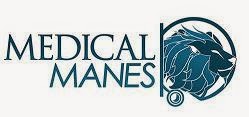Residency Training.
An interesting article and one which highlights how different
medicine is from all other professions appeared recently in the Globe and Mail. Exposure to long hours of call
and sleep deprivation are inherent in a profession that tries to
tender care twenty four hours a day, three hundred and sixty five days a year.
The enigma of trying to provide continuity of care while ensuring that
the care givers themselves have a tolerable life, goes on and is likely
to continue to do so. Unfortunately, training for such a profession
involves exposure to the twenty-four hour nature of the problem. The article went on to elaborate that a work week of sixty to ninety hours with shifts running as long as twenty-six hours was not uncommon. However, a recent article in the Canadian Medical Association Journal noted that attempts to shorten shifts have unintended consequences focusing on handovers resulting in missing information transfer and less continuity of care. It also results in a less comprehensive training program and a diminution of personal responsibility.
The very nature of being a physician has fundamentally changed in the last generation, partly as a result of medical care becoming 'the Health Care Industry'.
A colleague of mine told me the following illustrative story. In the middle of a complex procedure, his Resident (i.e. the student, already an M.D.) looked at the clock and noting it was five o'clock said, "Oh, it's five, would you mind if I leave now?"
My colleague, a little put out by this request answered, "I wouldn't care if you didn't come at all,"
Having been a teacher for a good part of my professional life, I was well aware that part of the quid pro quo, between teacher and student, was that the student assumed a small part of the responsibility for the provision of care. For the most part, the teachers are paid little or nothing and as the Resident advanced within the hierarchy he/she took on a portion of the load of the mentor. In my day, such a request to remove oneself from that responsibility would have been perceived in a very negative light.
"Why did you let him go?" I asked.
"I didn't have that option, this is what his union has negotiated," was the answer.
I have been reflecting on the implications of this ever since, because most of the hands-on skills I learned were learned out of hours. That was the time when the competition for learning procedures was least. Those were the hours when the folks on the bottom rung of the learning ladder got a chance to actually do things under appropriate supervision Tough as it was to have no limitations on hours of call and as inappropriate as it may have been, that was when I learned to do things that very few Family Physicians, or General Practitioners seem to be able to do now. That is where I learned to deliver babies, to put on forceps, to repair wounds and cuts and cope with emergencies. These are things that rural and remote family physicians still do, and for the most part do well. In the urban setting however, most of these skills have been lost. Minor surgical procedures, joint injections and other procedures well within the capabilities of the Family Dr are referred on, because that it the way the Administridiots have planned it and that is why people who need to see an Orthopedist or non urgent Surgeon wait for a year for procedures that are within the capabilities of the generalist. Administrative incompetence is a major factor as well as a poorly planned fee schedule and a subservient College.

No comments:
Post a Comment